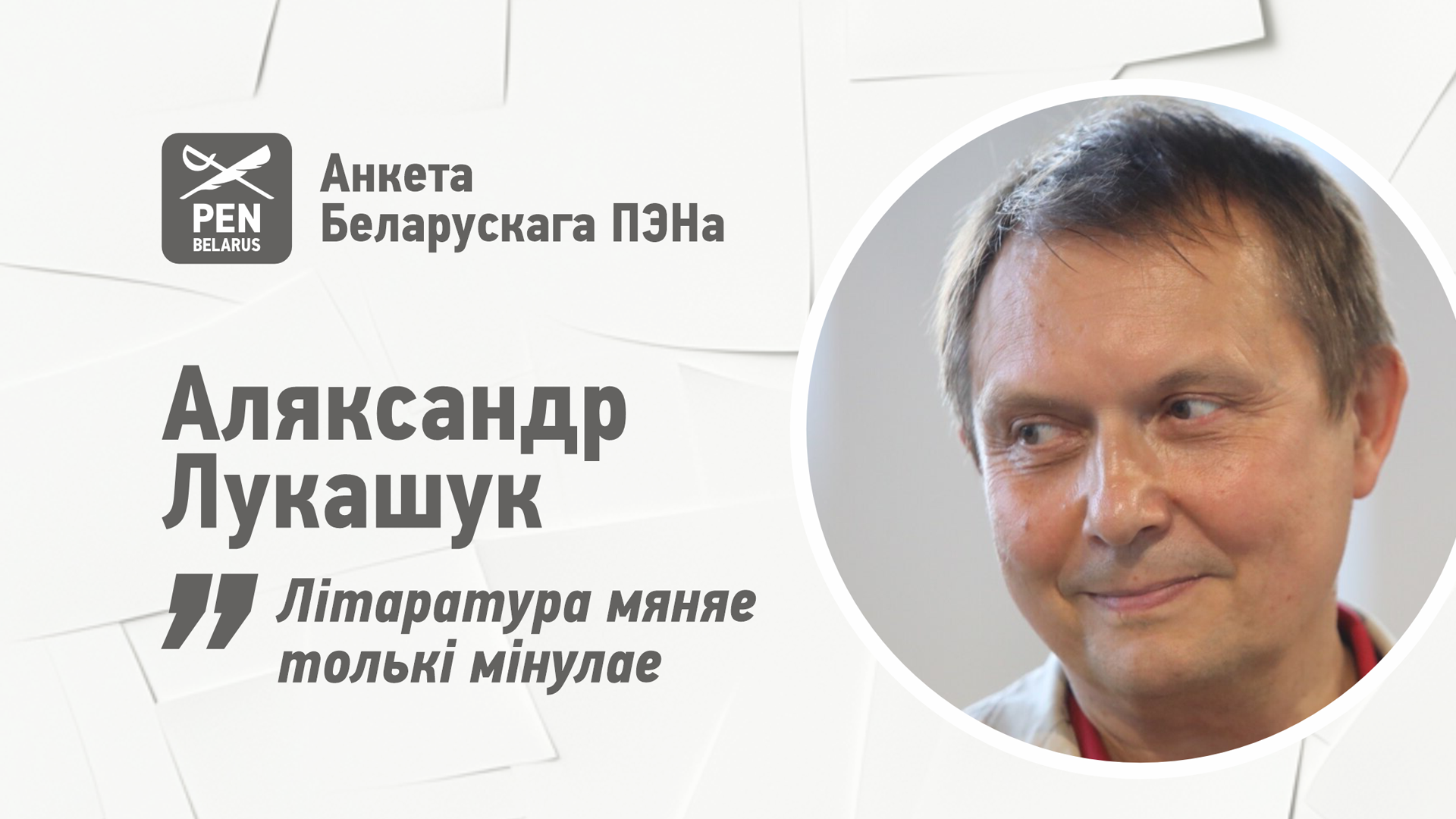
Belarusian PEN Questionnaire
What do writers think about certain facets of the creative process, the new challenges facing masters of the word, their literary taboos and sins, dreams and temptations? The answers to this questionnaire are not only mini-portraits of remarkable creators but also a kind of mirror reflecting the spirit of our organization.
1. Creation
What devil drives you to sit down at your writing desk? Do you keep any amulet or totem on it? Do you have a starting ritual?
If it’s a devil, then it’s a bald one. And a bald one has no itch in his head and no comb either.
What is the nature of your creative impulse, your illumination? Do you rely more on notebooks—or memory, life’s conflicts?
Nonfiction is a reflection of reflections, so the most important is their primary source—a document, a newspaper publication, a note, a recollection. Through these mirrors, one moves into unending time.
If your dreams had a textual version, what would this work be about, and what would it be like?
It’s already written and published, called In the Violet Night, the Corner of a Wing. In my dreams I can fly, though not very high, like a soul making its way through thick fog. Sometimes I frighten whoever is sleeping nearby—I shout and threaten the creatures of darkness I meet in my dreams.
Which book from world (or Belarusian) literature would you close forever so no one could ever read it again?
The one that teaches you to ask such questions.
What is your greatest writer’s sin? What literary taboo have you broken or dream of breaking?
The greatest writer’s sin is to judge what cannot be judged and must be shown—and to justify that which has no justification.
2. Creators
Who has influenced your literary style the most? Whose example do you measure yourself against? Whose impulses do you hear most clearly?
Ernest Hemingway, Marcel Proust, James Joyce, Ilya Ilf and Yevgeny Petrov, Vasil Bykau, Janka Bryl, Venedikt Yerofeyev, Uladzimir Arlou.
Do you ever ask anyone to read your text before you hand in the manuscript?
Documentary prose deals with emptiness as its material and the horizon as its goal, and any outside impulse helps in the struggle with the first but distracts from the movement toward the second. This does not apply to N-dimensional creatures called editors.
If you were offered a spiritual séance with the ghost of a writer, who would it be, and what would you like to learn from them?
Vasil Bykau. Did he find peace—or, on the contrary, must he live in the world of his own works? And what is his role there—could it really be as God of our draft of fate?
Your top list of writers—members of Belarusian PEN?
PEN is a non-hierarchical structure—a sphere where everyone is equally distant from the center.
Whom and what have you read lately?
Among PEN members—U. Arlou, A. Baharevich, U. Nyaklyaeu. I try not to miss new releases by the leading Belarusian independent publishers. I often revisit Vasil Bykau. Among others, I am rereading Anatoly Rybakov, the first president of Soviet PEN—his trilogy about the 1930s and the war, which so clearly foresaw the inevitability of the bastard Stalinism of today’s Russia and Belarus.
3. Creativity
What is the strangest place where inspiration has ever come to you?
At the writing desk 🙂
What do you consider the greatest literary myth?
That literature changes the future. Literature only changes the past.
Which sacred book of Belarusian literature are you tempted to rewrite the ending of?
Independence Is… by Uladzimir Arlou. The last line of this text is a date: 1990. I would change it to 1890—and everything would have been different, and there would have been no need to wait another hundred years until this text would stand in the same sacred line as The Book of Sirach, first printed by another boy from Polatsk.
What question would you like to hear from readers but haven’t yet?
What did you spend your Nobel Prize money on? I even know the answer—but by definition, it’s extremist.
Do you believe that words can change the Belarusian world?
Change it—no. Create it—yes. Because Belarus is a word.

Alaksandr Łukašuk is a Belarusian journalist, publicist, and translator.
He was the director of the Belarusian Service of Radio Free Europe/Radio Liberty (1998–2023) and is a laureate of the Francišak Bahuševič Prize and the Ales Adamovich Prize.
